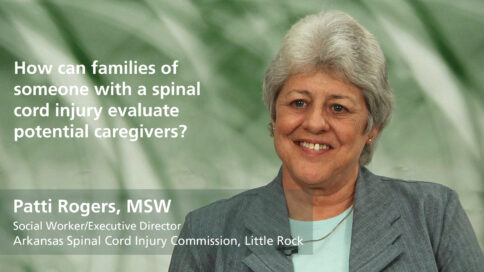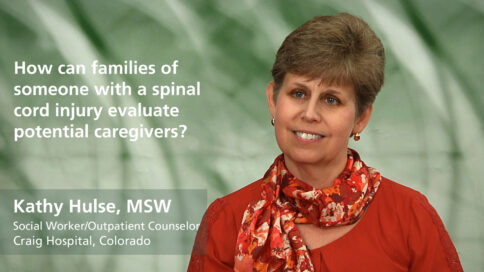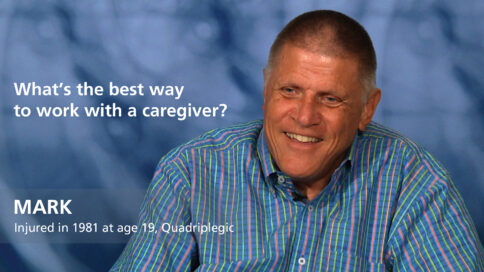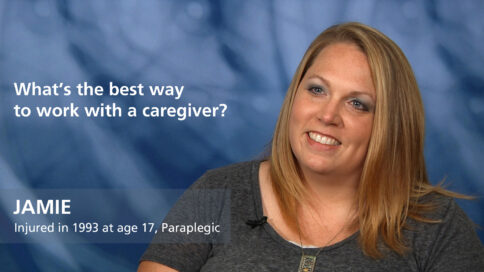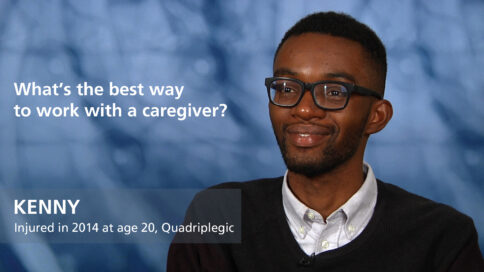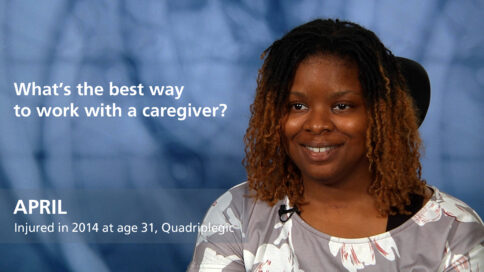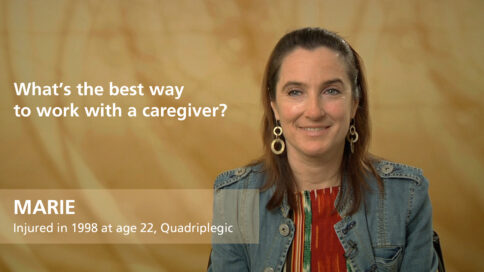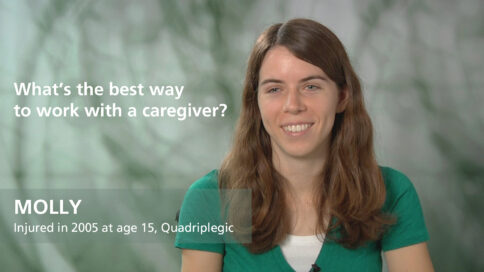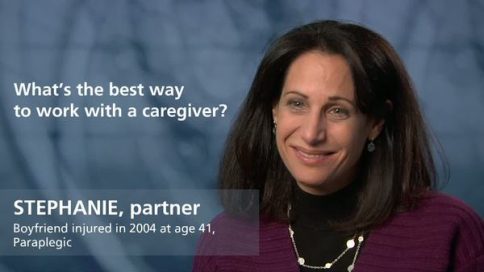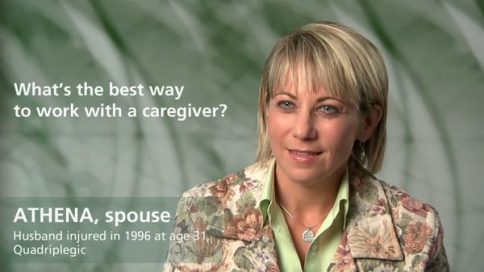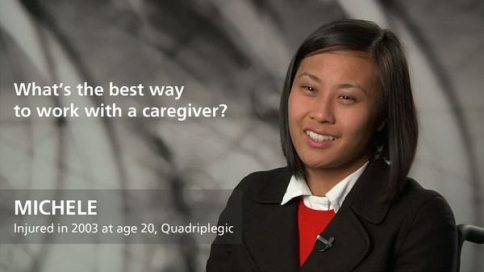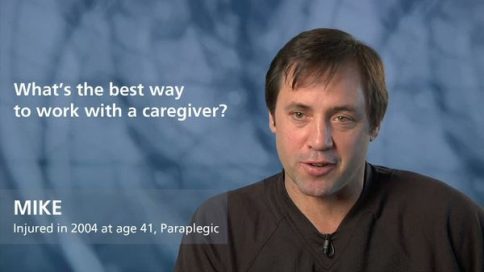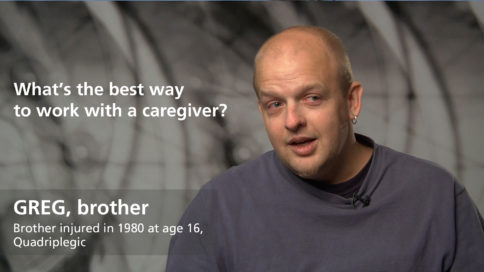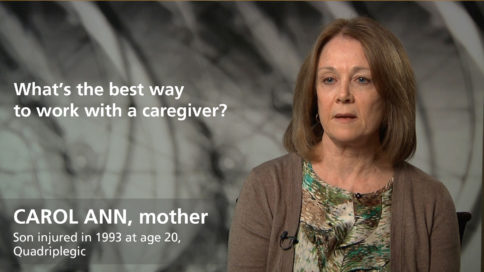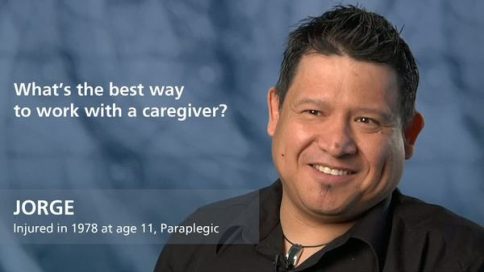How can families of someone with a spinal cord injury evaluate potential caregivers? - Marguerite David, MSW
|
|
How can families of someone with a spinal cord injury evaluate potential caregivers? |
|
Marguerite David, MSWSocial Worker, Seattle, Washington |
||
| Read Bio | More Videos by Marguerite David | |
|
Share |
||
Transcript
You can private-hire or there are a myriad of public programs in every state of different kinds in extent of how much they might provide in terms of the care. But I would say if you’re privately hiring, ask your social worker for a resource. “Personal Care Assistive Management” is one booklet that’s out there. It is very extensive on how to screen people, how to ask them certain questions, how to go over the tasks. I think the best thing is to have an attendant-care plan, which outlines when the person gets up, what they need when—at 10 o’clock, 11 o’clock—outline exactly what they need and how long it takes to do that so that when you’re hiring someone you say, “This is the attendant-care plan, and these are the duties that need to be done.” They can see the full scope of the job. When you’re hiring somebody to be an attendant or caregiver, you’re them hiring for a job. They’re not there to be your friend, and best buddy and all that jazz. But they also deserve a professional look at the job, not just say, “Could you come in and help my son or my husband?” So an attendant care plan where it’s written out and very clearly delineated is very helpful in hiring. But it’s also helpful if the family wants to do the support, and if you can’t be the person who does all the care, you see the scope of the job. And it will take actual time—eight-hours-a day—because “this takes this long and that takes that long”, and you know what the scope of the job is. So therefore, if you have a flexible family situation or other support, you can say “I’d like you to come here in the evening and help me out and this is what needs to be done. Boy, I could really use some help from you in the morning.” Because people, and family and friends always come up after a spinal cord injury and say “What can I do to help you?” And without having a clear plan when you get home to say, “I need your help in the morning from 8:00 to 10:30.” If it’s written out, you can hand that to them and say “This is how you can help me, I don’t need any more cookies or cakes.”
Show Less|
|
||
add
How can families of someone with a spinal cord injury evaluate potential caregivers? |
||
Marguerite David, MSWSocial Worker, Seattle, Washington |
More Videos by Marguerite David | |
| Transcriptadd | share | |
You can private-hire or there are a myriad of public programs in every state of different kinds in extent of how much they might provide in terms of the care. But I would say if you’re privately hiring, ask your social worker for a resource. “Personal Care Assistive Management” is one booklet that’s out there. It is very extensive on how to screen people, how to ask them certain questions, how to go over the tasks. I think the best thing is to have an attendant-care plan, which outlines when the person gets up, what they need when—at 10 o’clock, 11 o’clock—outline exactly what they need and how long it takes to do that so that when you’re hiring someone you say, “This is the attendant-care plan, and these are the duties that need to be done.” They can see the full scope of the job. When you’re hiring somebody to be an attendant or caregiver, you’re them hiring for a job. They’re not there to be your friend, and best buddy and all that jazz. But they also deserve a professional look at the job, not just say, “Could you come in and help my son or my husband?” So an attendant care plan where it’s written out and very clearly delineated is very helpful in hiring. But it’s also helpful if the family wants to do the support, and if you can’t be the person who does all the care, you see the scope of the job. And it will take actual time—eight-hours-a day—because “this takes this long and that takes that long”, and you know what the scope of the job is. So therefore, if you have a flexible family situation or other support, you can say “I’d like you to come here in the evening and help me out and this is what needs to be done. Boy, I could really use some help from you in the morning.” Because people, and family and friends always come up after a spinal cord injury and say “What can I do to help you?” And without having a clear plan when you get home to say, “I need your help in the morning from 8:00 to 10:30.” If it’s written out, you can hand that to them and say “This is how you can help me, I don’t need any more cookies or cakes.”
